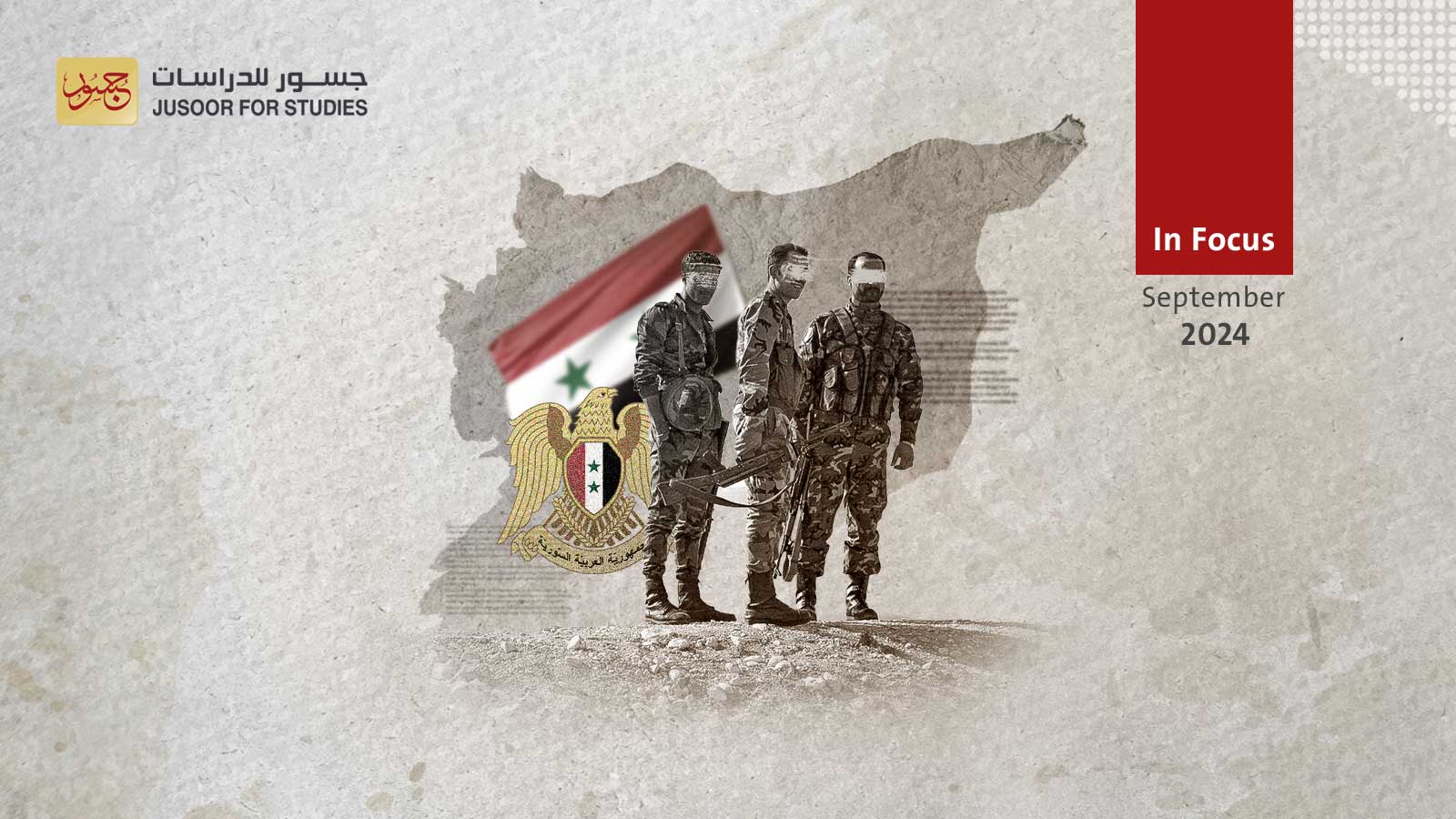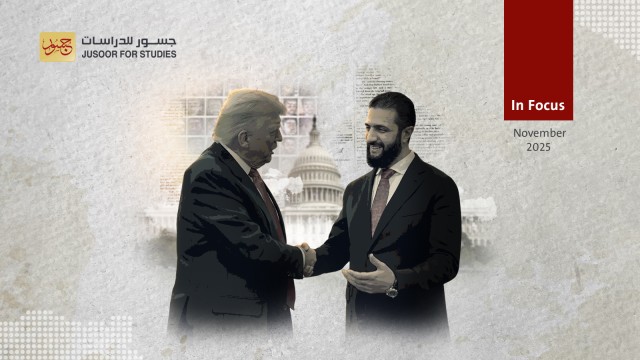Regime Mulls Shift to Voluntary Army Enlistment
In late 2023, the Syrian regime began a campaign of non-mandatory recruitment into its armed forces. This year, it has announced at least two further rounds of voluntary enlistment, most recently in September. These contracts with the Ministry of Defense offer certain incentives; applicants sign up for an initial contract of either five years or 10, with the possibility of a one-time extension before the age of 32. Those who had previously failed to perform compulsory and reserve service are eligible to apply.
This is the first time that the regime has turned to voluntary recruitment to fill the ranks of its armed forces. It had previously targeted mandatory conscripts and those recruited under its “service of the flag” law. Since mid-2023, it has issued several decisions aimed at bolstering its military manpower, following the failure of its efforts from the 2011 uprising onwards to rein in the deterioration of its forces. These moves included pardoning all the crimes committed by those included in the “service of the flag” law, and penalties for desertion, including against defectors.
The regime’s forces are comprised of three categories of manpower: voluntarily enlisted officers, Non-Commissioned Officers, and rank and file; men conscripted to military service as officers, NCOs and rank and file; and those called up for military duty, i.e. Syrian citizens who have reached the age of 18 and obtained military service files, but postponed their service for educational or social reasons, or those who have performed compulsory service and later been called up for reserve service.
It has long been clear that conscription is no longer a viable way for the regime to fill its ranks, given the large numbers of young Syrian adults evading military service by emigrating, refugees’ fear of returning, and the regime’s inability to round up conscripts even in some areas it controls, such as Suweida and Daraa—not to mention the fact that more than a third of Syrian territory falls outside regime control entirely, along with its residents.
Given this situation, the regime currently relies heavily on reservists to fill its ranks. Since late 2023, it has been trying to recategorize conscripts within its forces and integrate willing candidates into the volunteer category. It has also restricted reserve service, so that rather than being open-ended as is currently the case, it will wind down over three stages, starting from July 1, 2024 and ending in early 2026. The regime would however maintain the option of modifying the duration of reserve service, depending on rates of enrollment.
The conditions of reserve service had hitherto been rather ambiguous, due to the vagueness of Syrian law. For example, Article 17 of Legislative Decree 30 of 2007 stipulated that “first-line reserve service lasts a period of five years, and applies to reserve conscripts from the date of their assignment to reserve service until they complete this duration or exceed the legal age.” This mean conscripts could continue to serve in the reserves until reaching the age of exemption, which had been 42 years until it was lowered to 38 in 2024.
The reality is that the regime’s recent attempt to boost its recruitment of volunteers owes not only to its inability to fill its ranks sufficiently with conscripts, or to the fact its reserve force has turned into more of a burden than an asset. Rather, it reflects the fact that those called up to serve have a number of options; regime allies Russia and Iran are both working to attract Syrians into the ranks of their own affiliated militias, offering them better security and financial privileges than those the regime offers.
For example, the 47th Brigade in Hama is a major recruitment center for Iranian militias, where those joining up are offered a full exemption from compulsory service in regime forces, in exchange for serving for just a year and a half, after which they are allowed released from service. Likewise, Special Missions for Protection and Security Guards, a Syrian company working for Russia, regularly advertises jobs guarding oil facilities, in exchange for comfortable working hours, a security card, and normalizing the legal status of those who have not performed their compulsory service.
Therefore, in its efforts to transform its forces into an army recruited by voluntary enlistment, the regime is seeking to achieve several goals:
• Doing away with the burden now represented by the reserve force, given the decline in discipline of reservists over the course of their years of service. Addressing this would require reclassifying them, issuing them with volunteer or service contracts, or dismissing and replacing them.
• Meeting the need for high-quality fighters. Syria’s conscription-based forces have not performed particularly well in battle over more than a decade of conflict in Syria, largely due to defections and evasion of conscription. This has been reflected in combat operations and the Syrian army’s repeated failures in its military missions. The state of instability and conflict in Syria, which is likely to continue for years to come, means the regime will wish to rely less on the quantity of its personnel and more on their quality.
• Placing pressure on eligible for compulsory service. Recruits in this category have two options: either enlist to serve for five years, and continue to be liable for reserve service, or enlist for 10 years and subsequently be exempted from the reserves. This adds to the pressure on this category, especially a the regime had previously threatened to implement this measure in 2021. The regime is using several methods to put pressure on this segment, whether through legal means or by confiscating the property of those who have failed to perform compulsory service and are over the age of 42.
• Reducing pressure on the budget. The regime’s lack of financial resources has forced it to re-evaluate its expenditures on conscripts; voluntary enlistment may offer better financial conditions and terms of employment compared to continuing with an open reservist system.
• Creating alternatives to employment in the civilian public sector, by bolstering the military and security sector through voluntary enlistment. The regime has long relied on a policy of creating jobs in the public sector to tackle an unprecedented rate of unemployment, which has led to significant losses in the sector.
Ultimately, the regime hopes that restructuring its recruitment system and trying to transform its forces into a volunteer army will help address the severe depletion of its forces since 2011, along with the twin crises of evasion of conscription and desertion of personnel.
However, these efforts face many obstacles, including the decline of its economic capacity, which undermines its ability to train up professional fighters and to create the training infrastructure they need, as well as the regime’s failure to progress in implementing its plan due to the lack of trust between it and potential recruits. The move could also stir competition and discontent between older and newer volunteers, as the former are not entitled to apply for the new contracts, depriving officers and other personnel of the substantial privileges that latter will receive.








